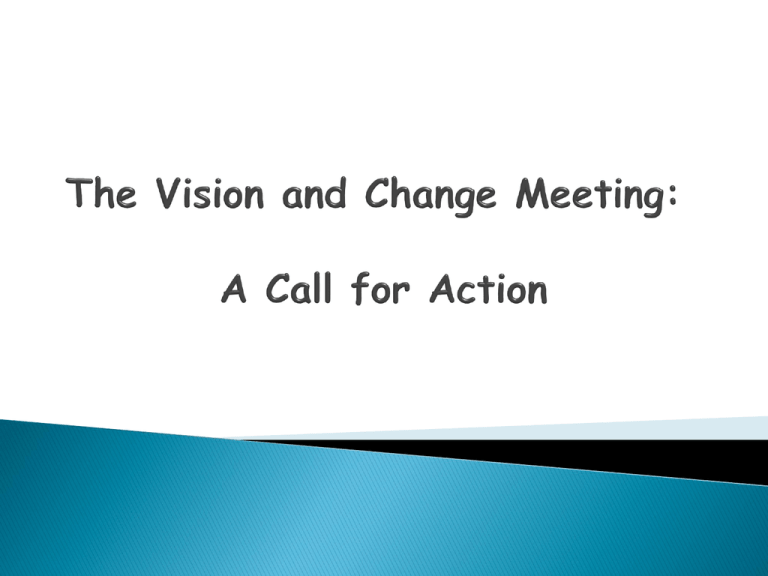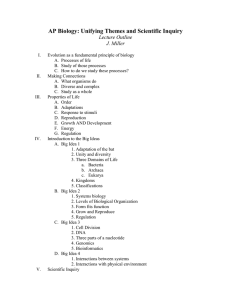vision_and_change_Linnea_Fletcher - Bio-Link
advertisement

“Science teaching has suffered because science has been so frequently presented as so much ready-made knowledge, so much subject-matter of fact and law, rather than as the effective method of inquiry into any subject-matter” Focus on the undergraduate student Increase # of students in STEM careers Increase # of students who stay in STEM Recognized that Biology practice has changed Have a better understanding of how students learn Recognized the need for ◦ Less content, more interdisciplinary ◦ More research based inquiry ◦ Understanding concepts rather than memorizing Strategy developed by BIO-EHR Working Group: 1. Conversations – listen for shared vision and the changes needed to achieve it 2. Big Conference – crystallize initiative and partnerships 3. Report – articulate the vision, synthesize previous efforts; recommend changes needed & roles; address sustainability 4. Implementation – make investments; implement commitments; improve communication; leverage feedback loops Approved by a joint meeting of the BIO Advisory Committee and the EHR Advisory Committee in November 2006 NSF supported regional conversations during 2007-2008 – AAAS facilitation: 211 participants from… community colleges, PUIs, MSIs, major R1 universities, museums, science centers, education organizations, other federal agencies, National Academies, field stations, professional societies… 2006 BIO –EHR working group 2007 2008 Denver San Francisco Chicago Boston Washington Atlanta Image created with Google Maps 2009 www.visionandchange.org A Call to ACTION! Converging Efforts to Improve Biology Education A New Biology for the 21st Century Vision and Change Problem solving Critical thinking skills Student centered learning Interdisciplinary curricula Research opportunities Web-based resources AP Biology Curriculum Concepts: -evolution -biological systems -interaction of systems -organisms & information -information technologies -environment -energy -health -food Medical School Admissions -scientific competencies -fundamental scientific principles Yolanda George, Deputy Director Education and Human Resources Programs, American Association for the Advancement of Science


